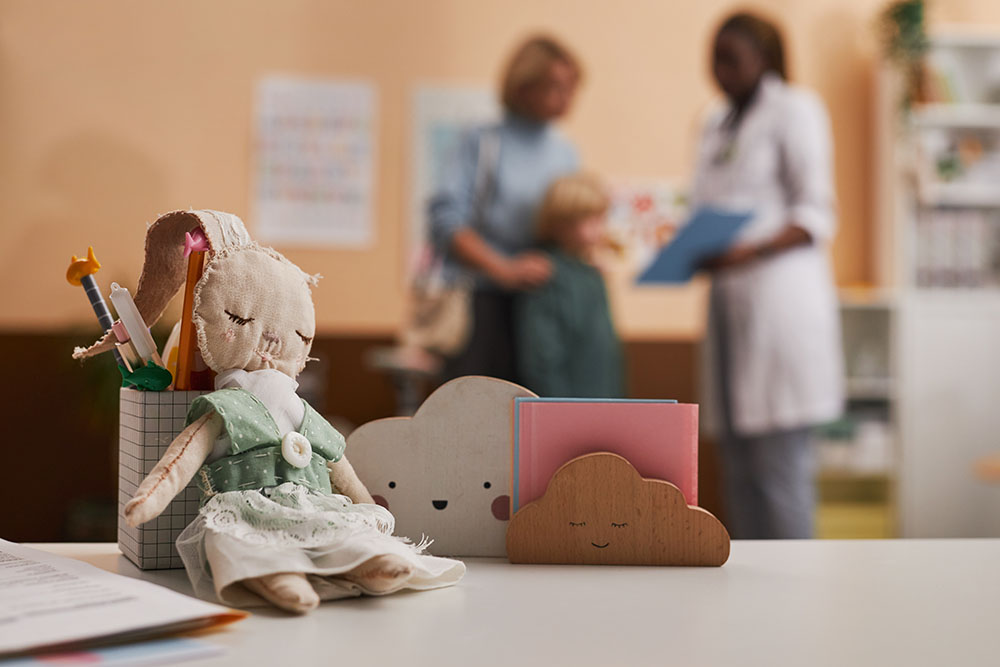Your surgery date will be provided to you before you leave the office in most cases or will be arranged over the phone soon after the office visit.
The hospital or surgery center at which you are having surgery will call you to schedule a pre-operative appointment or phone interview – usually a few days before your scheduled surgery.
If you have not heard from the hospital or surgery center and your date is approaching, please call our office at 520-795-5338 between the hours of 9:00am and 5:00pm, Monday – Friday.
It is important that the patient not eat or drink after midnight on the morning of surgery. The risk of food coming up from the stomach and causing severe problems with anesthesia is very high in children who have eaten within 8 hours of surgery. Clear liquids are sometimes allowed up until 2 hours before surgery, but drinking anything the morning of surgery can sometimes cause a delay if there is a cancellation or schedule changes and their stomach isn’t empty. The anesthesiologist will usually cancel any case in which the child has eaten before surgery. Please call our office at 520.795.5338 if you have questions about the instructions for eating/drinking.
Preparing Your Child for Surgery
Helping your child prepare for surgery can have many benefits, including calming their fears, making recovery easier and faster, and helping you stay focused on their needs. Here are some tips for each age group to ease worries and support you when it’s time to comfort your baby or talk to your toddler, preschooler, school-age child, or teenager about their upcoming surgery.

Preparing Your Baby for Surgery
- Keep Their Routine Normal: Maintain your baby’s usual routine the day before surgery to create a sense of normalcy.
- Use a Relaxed Voice: Speak in a calm, soothing manner and use relaxed body language.
- Familiar Items: Bring your baby’s pacifier and a favorite toy or blanket to the hospital.
- Rest Well: Ensure you, your baby, and your family are well-rested.
- Stay Calm: Your baby can sense your stress, so take care of yourself to help them stay calm.
Preparing Your Toddler, Preschooler, or School-Age Child for Surgery
Talk Ahead of Time:
- Tell your toddler about the surgery one to two days beforehand, and your preschooler or school-age child three to four days beforehand.
- Read books about going to the hospital to help them understand what to expect. A Visit to Sesame Street Hospital by Deborah Hautzig is a good example.
Play Therapy: Allow your child to act out the surgery on a doll or stuffed animal.
Positive Language: Use words they can understand, like “sore” or “achy” instead of “hurt” or “pain.”
Reassurance: Assure your child that surgery is not a punishment and explain why it’s necessary.
Stay Honest: Be truthful to build trust, and avoid making promises you can’t keep.
On Surgery Day for Young Children
- Comfort Items: Let your child bring a favorite stuffed animal, toy, or blanket.
- Reassure Them: Let your child know you will be close by before and after the surgery.
- Stay Patient: Try to remain calm and patient, as your child may exhibit stress-related behaviors like tantrums or regression.
Preparing Your Teen for Surgery
Early Preparation: Discuss the surgery as soon as the decision is made, explaining the reasons for it.
Involve Them: Allow your teen to help with planning and make choices when possible.
Address Fears: Encourage your teen to ask questions and talk about their fears.
Explain the Process: Inform your teen about the anesthesiologist’s role and the surgery process.
Honesty and Support: Be honest and provide support, reinforcing that it’s normal to have fears.
On Surgery Day for Teens
- Comfort Items: Have your teen bring items like video games, a cellphone, books, movies, or music.
- Emotional Support: Be patient and understanding of their mood swings and need for space.
- Encouragement: Let your teen know it’s okay to be afraid and that you’re there for them.
- Stay Connected: Help your teen stay in touch with friends through visits or phone calls.
Parents: Don’t Forget to Take Care of Yourself
Manage Your Stress: Your child can sense your stress, so take steps to manage it by being well-informed and well-rested.
Be Prepared: Know what to expect about the surgery to reduce your own fears.
Checklist: Things to Do at Home Before Surgery

Prepare Comfort Items: Wash any items like blankets or stuffed toys that will go with your child to the hospital.
Hygiene: Give your child a bath or shower the night before surgery, cleaning thoroughly with regular soap and water.
Post-Bath Care:
- Dress your child in clean, loose fitting clothing.
- Avoid using baby oil, moisturizers, or lotions.
- Remove all jewelry, nail polish, and contacts if applicable.

